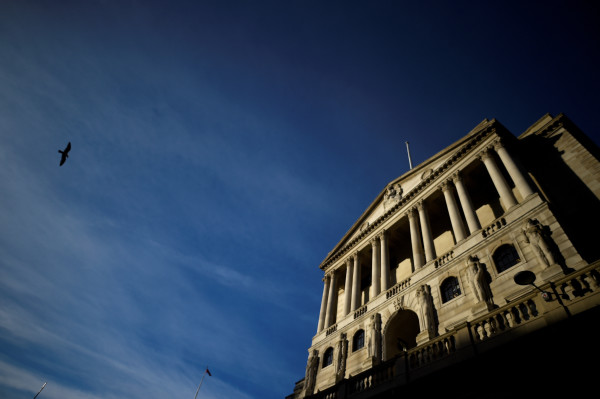

Coronavirus, the collapse in oil prices and swift moves by central banks to shore up their battered economies has been all anyone has talked about this week.
As news hits that more than 162 countries have reported cases of coronavirus, with death rates spiking in European countries and many cities, even countries, on total lockdown, central banks have proved the bears can growl.
The US Federal Reserve, disconcerted by unprecedented daily drops across the S&P 500 and the Dow Jones Industrial index, effectively cut its benchmark to zero. The benchmark US interest rate is now in a range of 0 to 0.25 per cent, down from a range of 1 to 1.25 per cent.
The Fed also announced a mammoth $700bn (£575bn) quantitative easing programme to shore up the economy at this time.
Meanwhile, a raft of emergency funding (created mostly by borrowing) has been offered to the UK by chancellor Rishi Sunak, who came into the role just a few weeks before the Budget – and before coronavirus became widespread across the globe.
While there is no change in the scale of QE, the Bank of England announced it will be introducing a new Term Funding Scheme with additional incentives for small businesses, which will provide an extra £100bn of funding. The bank also said it would cut the countercyclical capital buffer rate to zero, which could potentially release £190bn of lending to businesses.
Then the Bank of Japan moved to ease monetary policy by pledging to buy risky assets such as exchange-traded funds at double the current pace, joining global central banks in combating the widening economic fallout from Covid-19.
Japan's central bank also announced the creation of a new loan programme to extend one-year, zero-rate loans to financial institutions in an effort to boost lending to companies hit by the virus outbreak.
Whether these three bears' efforts, and others that will follow suit, will be enough for the airline industry – for whom a low oil price of $31.41 per barrel for Brent Crude (as at the time of writing) might not be enough to defend them against huge earnings losses – is another consideration.
No wonder many investors in large-cap passive funds are now wishing they had paid the extra for active management that could have avoided some of the high portfolio losses that tracker funds have exhibited the past week, although for many houses it's business as usual.
A black swan event is pretty rare, but as far as these birds go, we had two in the past 14 days, with Russia and Saudi-Arabia announcing an oil war, which, as mentioned, has resulted in the biggest drop in oil prices since the 1991 Gulf War.
As Alpha Portfolio Management told its clients this week: "Long-term investing is challenging, but is typically rewarding. From time to time, investors will have to face a black swan event. But early in 2020 we have had to face two black swan events in a matter of a few weeks. Christmas seems a long way off, but let’s hope two turtle doves – central bank support and government fiscal stimulus – get us through the coronavirus outbreak."
So we have had three big bears, two black swans and more dovish behaviour from the BoE, which gets former BoE deputy governor-turned-regulator-turned-BoE governor Andrew Bailey taking the tiller from Mark Carney.
The BoE cut rates by 0.5 per cent, to a joint record low of 0.25 per cent. There will be teenagers in the UK who, if they cared about interest rates, will have never seen a major interest rate rise above 1 per cent.
With Mr Bailey's reputation for calm and considered prudential regulation, rather than the shoot-them-from-the-hip methods favoured by previous Financial Conduct Authority chief executive Martin Wheatley, it is to be expected the dovish behaviour seen in the past decade from the BoE will continue.
Mr Bailey's return to the BoE at this time might be just the restraining, calm influence the UK needs at the central bank.
One can only hope so, for the sake of the entire economy.
Since the article was first published the ECB has announced a ‘Pandemic Emergency Purchase Programme' of €750bn (£700bn) which will buy government and company debt across the eurozone.
simoney.kyriakou@ft.com




